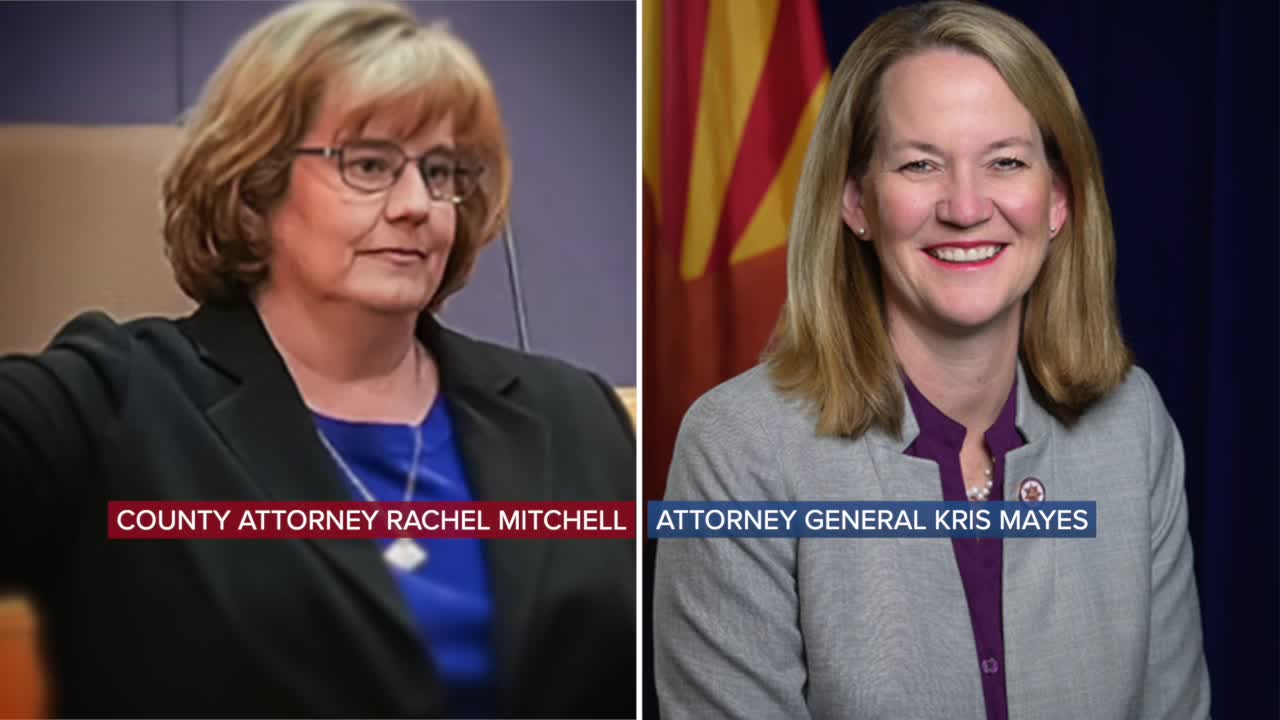PHOENIX — Republican Maricopa County Attorney Rachel Mitchell and Democratic Attorney General Kris Mayes rarely agree on politics, but they've found common ground in opposing Arizona's anti-SLAPP law.
A provision of the law passed by state lawmakers could force each of them testify about how they handled their prosecutions in a pair of high-profile cases.
Mitchell filed a special action this month seeking to declare the law unconstitutional after a local justice court ruled against her in the case involving 68 people arrested and charged after protesting at Arizona State University.
RELATED: Maricopa County Attorney sues court to avoid testifying in pro-Palestine protester case
Following the county attorney’s special action, Mayes filed a brief to support Mitchell’s effort.
Anti-SLAPP laws typically protect people from civil action related to their First Amendment rights. However, in 2022, Republican state lawmakers expanded the statute to prevent people from being charged criminally if they were first investigated or targeted related to free-speech activity.
In addition to protesters using the Anti-SLAPP motion, defendants in Arizona’s so-called “fake electors” are also testing the law.
Mayes' office released a statement calling the law "seriously flawed" and expressed concern about its "sweeping consequences for criminal prosecutions in Arizona."

ABC15 is committed to finding the answers you need and holding those accountable.
Submit your news tip to Investigators@abc15.com
"(Attorney General Mayes) is deeply concerned that this law—passed by soft-on-crime Republicans in the legislature—will have sweeping consequences for criminal prosecutions in Arizona beyond this specific case," the statement said.
RELATED: MCAO accused of once again politically prosecuting protesters
The Maricopa County Attorney’s Office has repeatedly denied any retaliation against the ASU protesters and declined to comment on the special action.
At a recent press conference, Mitchell also said she won’t discuss specifics of her position.
“As you know, this is pending litigation, so I’m not really going to comment on that,” she told ABC15. “We filed… a 43-page motion with attachments explaining our reasoning. I would urge people, if they’re wondering why we’re challenging it to read that.”
In the special action, MCAO argues the anti-SLAPP law violates several legal principles, including separation of powers, the Victim's Bill of Rights, rules of criminal procedure, and is too vague in its language.
The legal challenge is ongoing, with courts yet to determine how and when they will address the constitutional questions raised by both prosecutors.
Contact ABC15 Chief Investigator Dave Biscobing at Dave@ABC15.com.
This digital article was produced with the assistance of AI and converted to this platform based on the broadcast story written and reported by ABC15 Chief Investigator Dave Biscobing. Our editorial team verifies all reporting on all platforms for fairness and accuracy.




